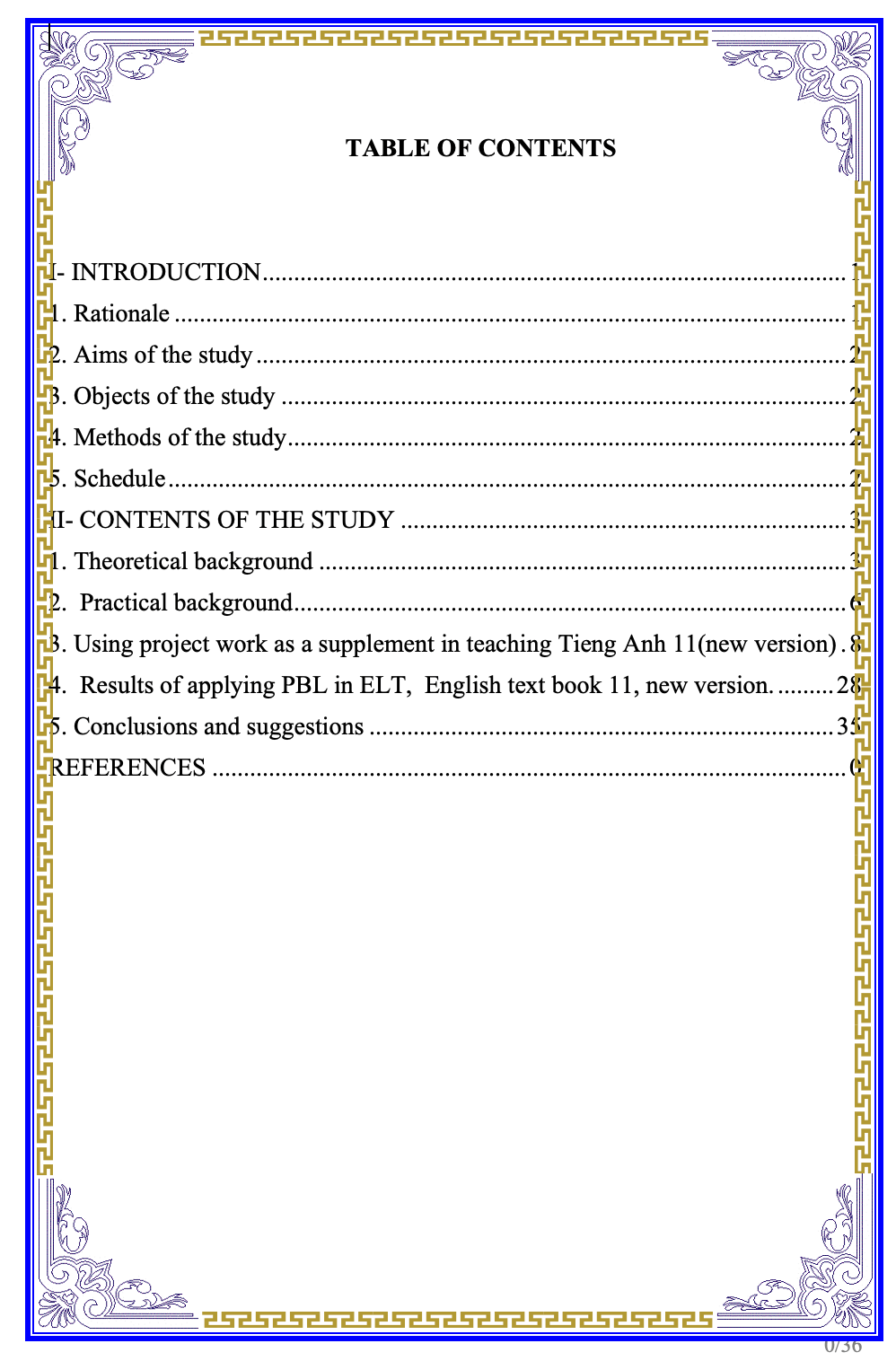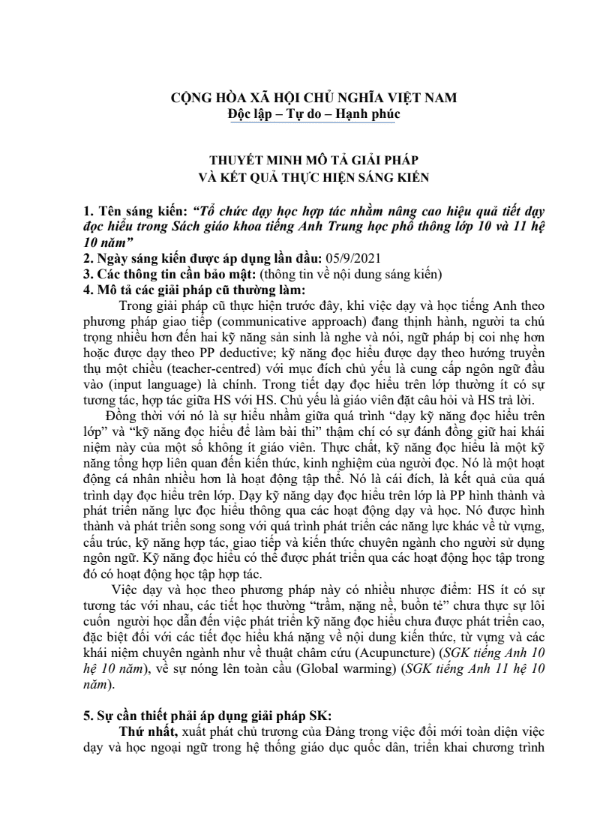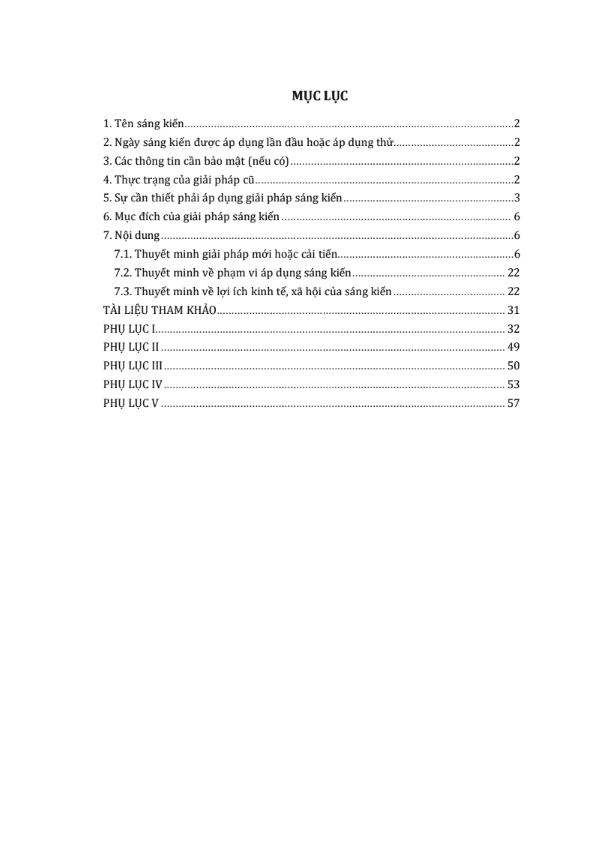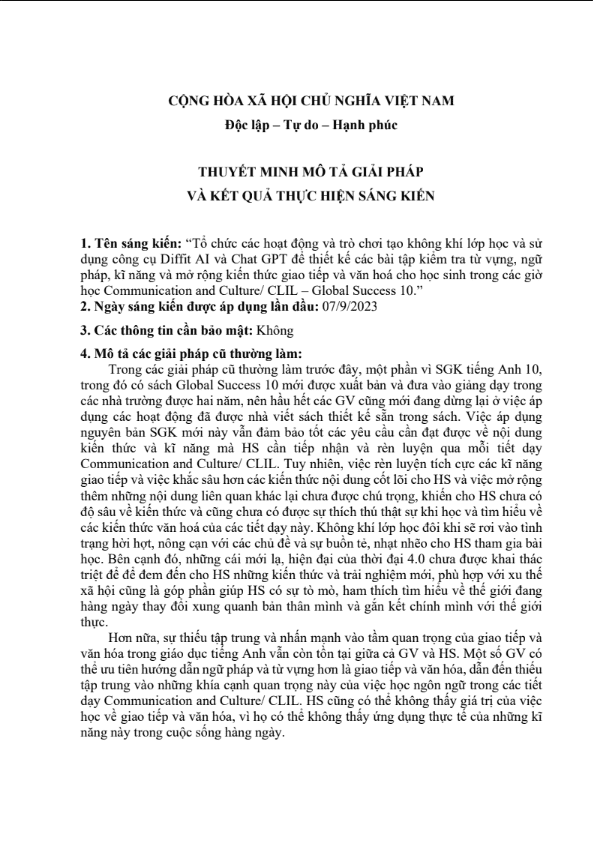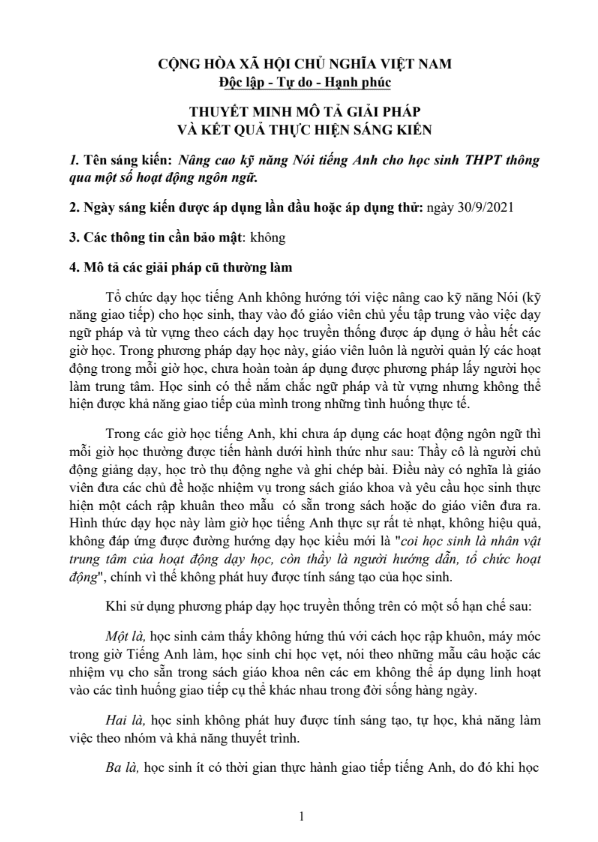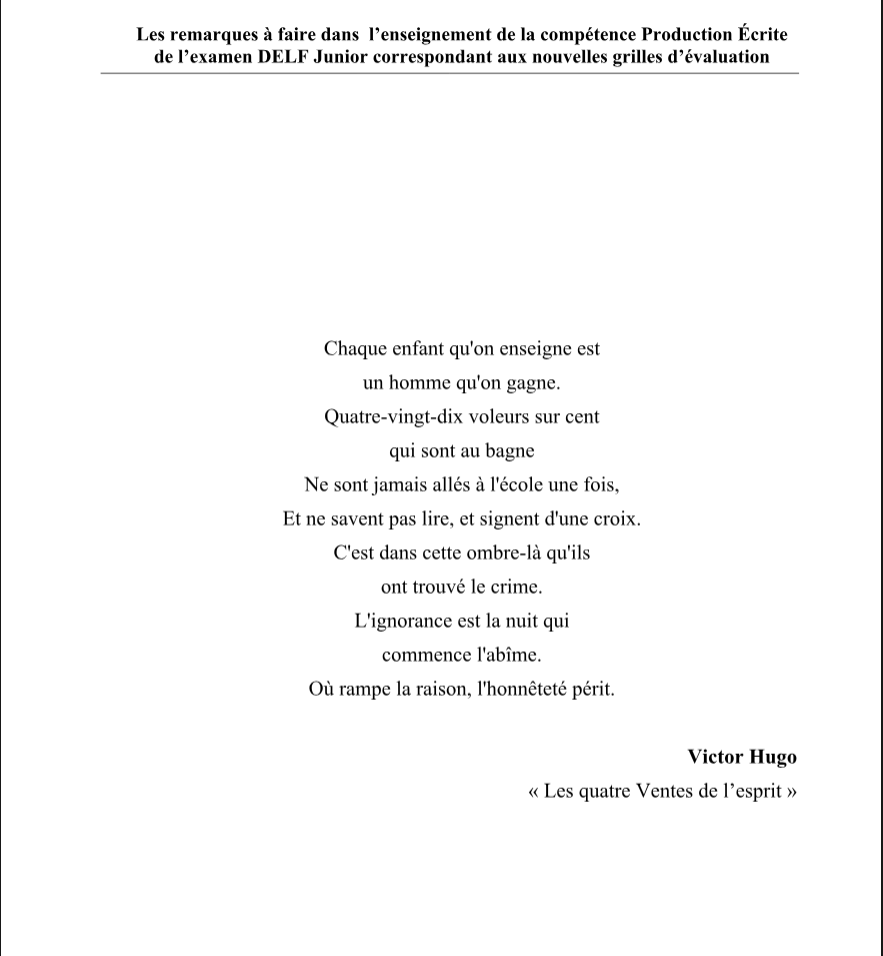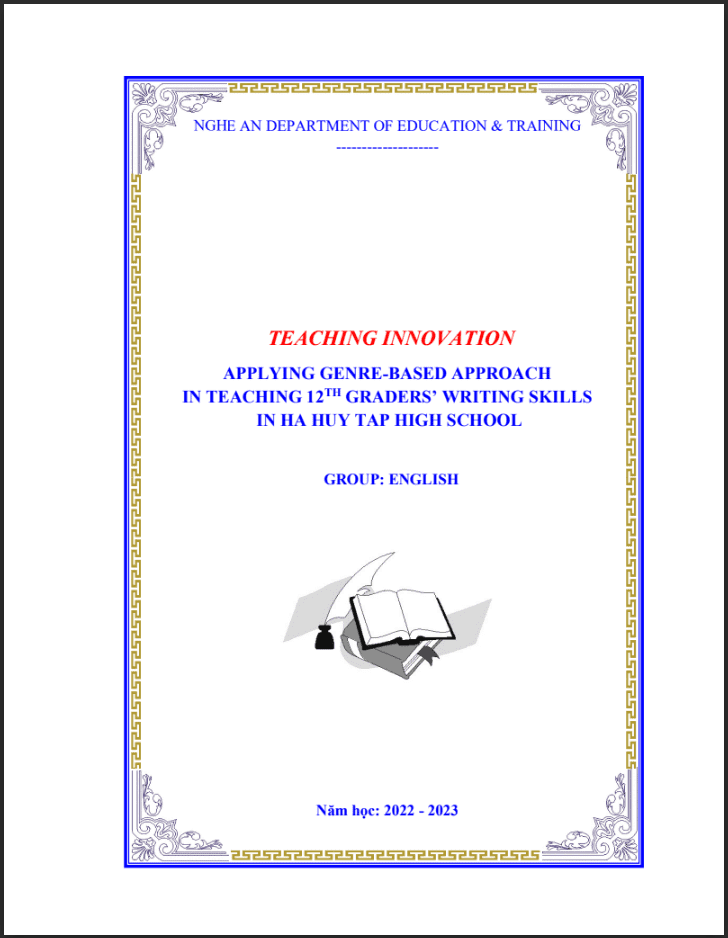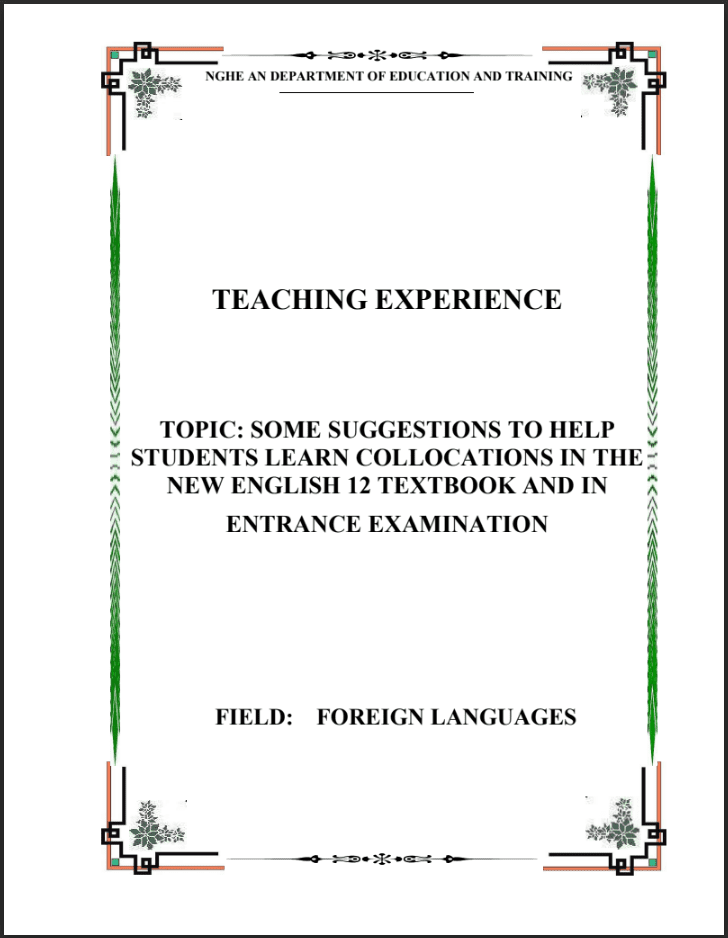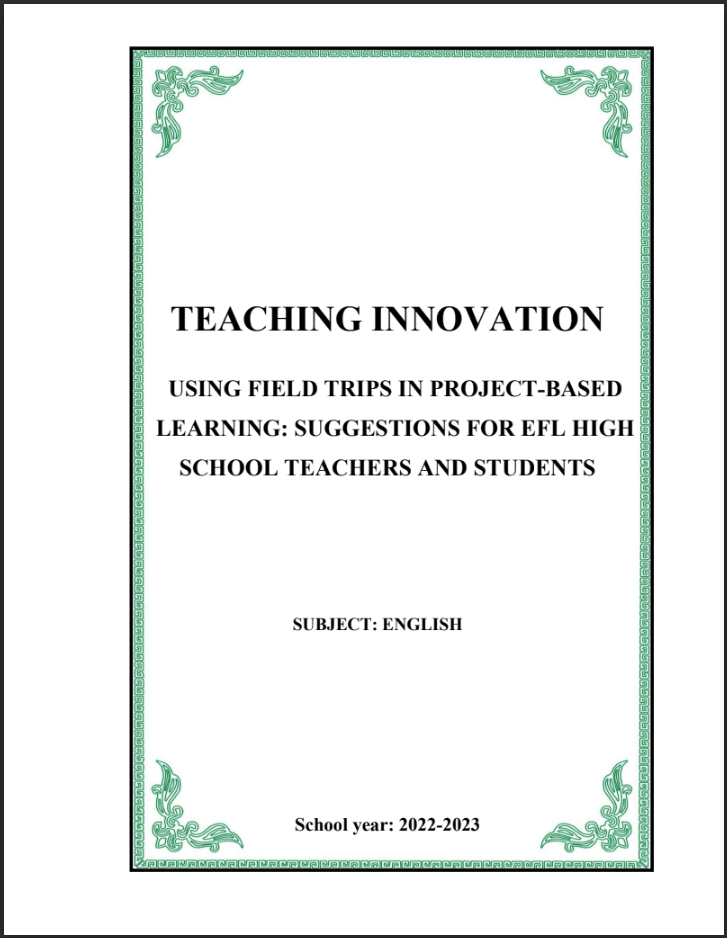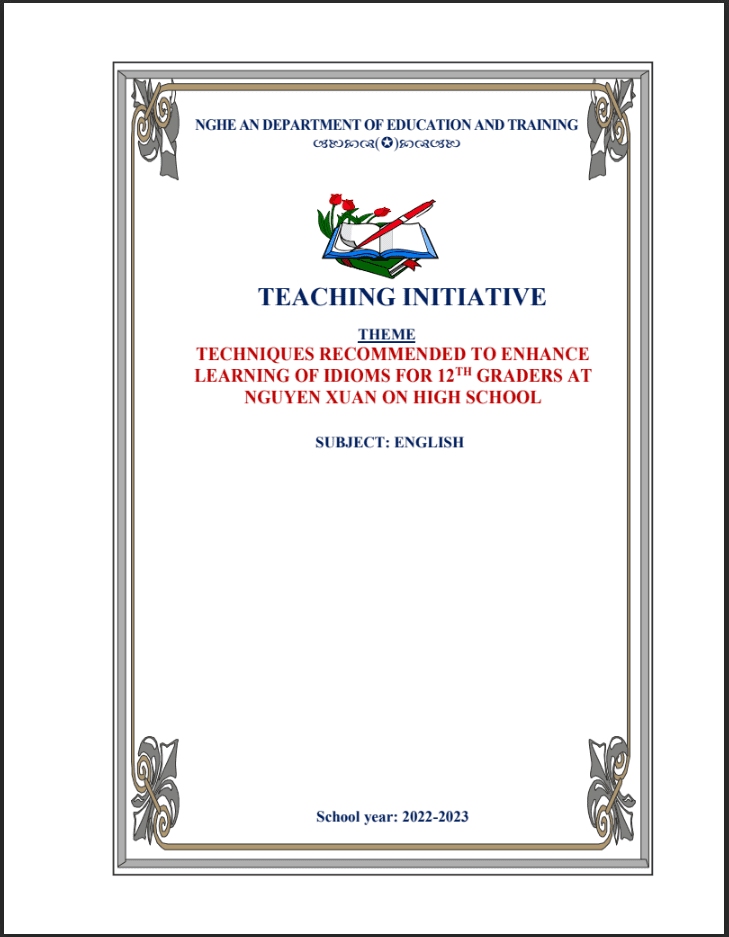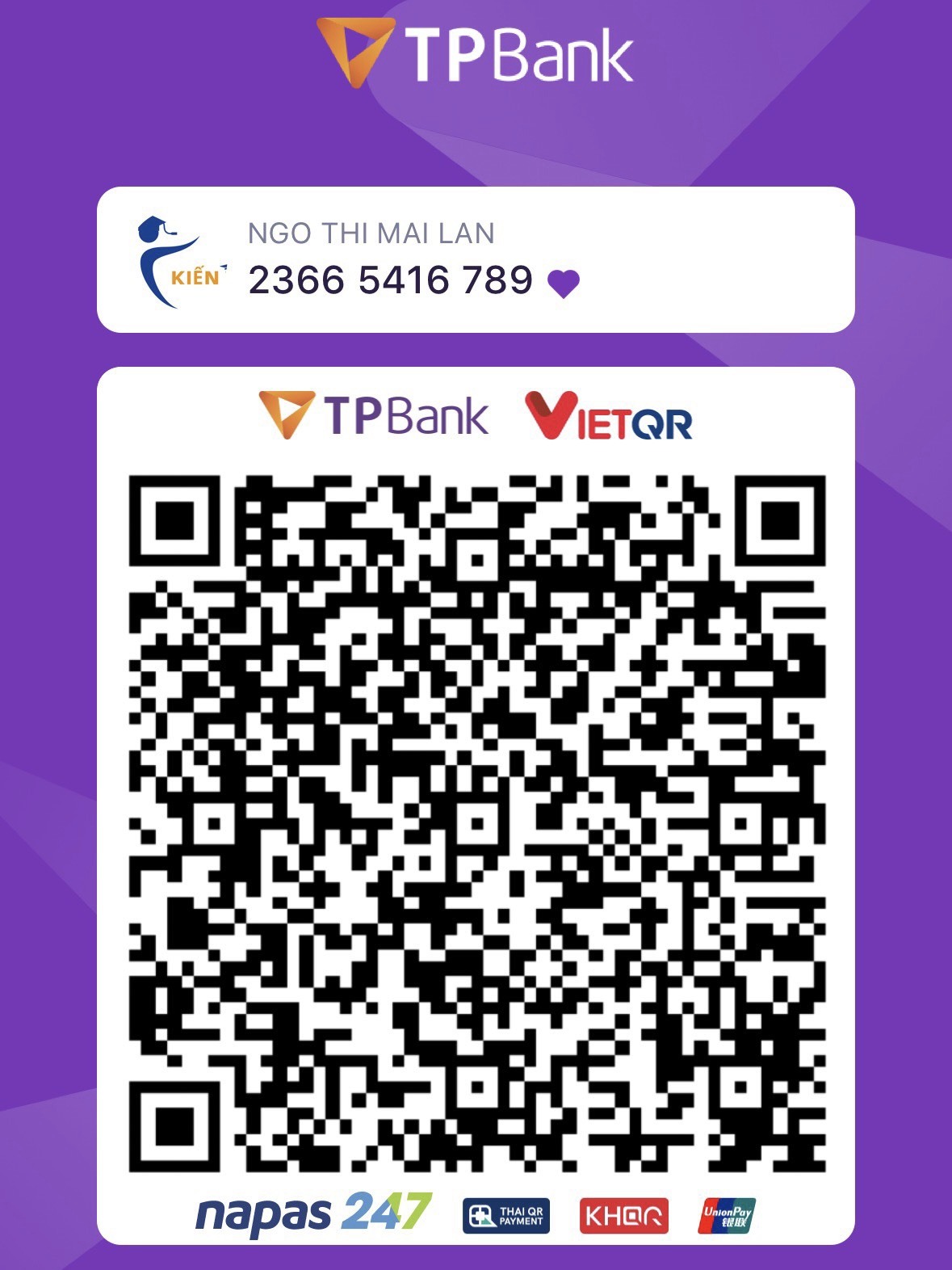SKKN Using project work as a supplement to promote 11th graders’ autonomy in online classes
- Mã tài liệu: MP0046 Copy
| Môn: | Tiếng anh |
| Lớp: | 11 |
| Bộ sách: | |
| Lượt xem: | 1250 |
| Lượt tải: | 1 |
| Số trang: | 46 |
| Tác giả: | Đặng Thị Mai Hương |
| Trình độ chuyên môn: | Thạc sĩ giáo dục |
| Đơn vị công tác: | THPT Hà Huy Tập |
| Năm viết: | 2021-2022 |
| Số trang: | 46 |
| Tác giả: | Đặng Thị Mai Hương |
| Trình độ chuyên môn: | Thạc sĩ giáo dục |
| Đơn vị công tác: | THPT Hà Huy Tập |
| Năm viết: | 2021-2022 |
Sáng kiến kinh nghiệm “SKKN Using project work as a supplement to promote 11th graders’ autonomy in online classes” triển khai gồm các biện pháp nổi bật sau:
Step 1: Students and teacher agree on a theme for the project.
Step 2: Students and teacher determine the final outcome of the project.
Step 3: Students and teacher structure the project.
Step 4: Teacher prepares students for the demands of information gathering The language, skill, and strategy demand associated with information gathering should be provided.
Step 5: Students gather information.
Step 6: Teacher prepares students to compile and analyze data.
Step 7: Students compile and analyze information.
Step 8: Teacher prepares students for the language demands of the final activity.
Step 9: Students present the final product. The students present the final outcome of their projects, as planned in the second step.
Step 10: The teacher remarks the results and elicits the core content of the lesson through students’ activities.
Mô tả sản phẩm
I- INTRODUCTION
1. Rationale
The SARS-CoV2 virus has threatened the activity of high schools, colleges and universities, which is why the issue of whether or not to continue teaching and learning has been raised, provided that the health of students and of education staff is protected. Educational institutions preferred to close traditional (face-to-face) teaching activities, including laboratories, and transferred teaching activities to the online environment in order to prevent the spread of the virus. Forcibly moving educational activity to the online environment allows for flexibility in teaching and learning because courses are easily accessed. Therefore, it is very difficult for teachers to monitor the learning process and the progress of students. Or if so, it will take more time than usual.
On the other hand, teachers’ roles today are considerably different than they used to be. Their job is to counsel students, help them learn how to use their knowledge and integrate it into their lives so they will become valuable members of society. That is why there is a high risk that formal education may affect learners’ autonomy (making their own learning decisions) due to the fact that students tend to be passive and likely just do what they are required to do without commenting what teachers implement in classes. As the theory and practice of language teaching enters a new century, the importance of helping students become more autonomous in learning has become increasingly prominent. To its critics, autonomy is an idealistic goal and its promotion a distraction from the real business of teaching and learning languages. Autonomy is like a precondition for effective learning; when learners succeed in developing autonomy, they not only become better language learners but they also develop into more responsible and critical members of the communities in which they live.
The idea behind the project was to foster learners’ autonomy through the application of cooperative work, allowing each student to be responsible for specific tasks and, in general, to take charge of her/his own learning process
As teachers and researchers who have been involved with the promotion of the idea of autonomy for a number of years, we decided to choose the topic: “Using project work as a supplement to promote 11th graders’ autonomy in online classes” due to the following reasons:
Firstly, improving autonomous learning in students is considered as the key method to insure students’ learning process in the context of learning from far distance.
Secondly, autonomy is a legitimate and desirable goal of language education. The concept of autonomy is grounded in a natural tendency for learners to take control over their learning. Autonomous learning is more effective than non-autonomous learning. In other words, the development of autonomy implies better language learning.
Finally, project work has numerous positive effects on critical thinking, motivation and engagement. As we learn more about how the brain works and how humans acquire information, we are slowly tweaking our framework for learning. Providing projects can drive students to encounter and struggle with useful, real-world content knowledge that they could apply to a variety of tasks.
2. Aims of the study
This paper endeavors to demonstrate the value of project work in promoting learners’ autonomy in ELT in general and English teaching in particular. Therefore, my theme focuses on making clear about some issues below:
– What are the most difficult tasks to increase students’ interest in doing a project?
– What are the most significant remains of making project work?
3. Objects of the study
The research scope includes the three classes, namely class 11A1,11A2 and class 11D1 at Ha Huy Tap High School, Nghe An province. They are selected to be the participants of the study, all of them have fulfilled English text book 10 in the previous school year.
4. Methods of the study
This study illustrates the findings of an action research developing learners’ autonomy through project work. It was conducted at Ha Huy Tap High school in Vinh city with secondary students. The instruments for data collection were journal, oral interviews, and video recordings. The results revealed that learner autonomy could be developed by means of cooperative work in order to achieve common interests and support each other. Furthermore, students also are expected to display self-regulation by learning strategies, as well as enhance intrinsic motivation in order to achieve leaning goals. In order to do this kind of action research, we must make some attempt to foster autonomy among the learners we work with. In doing so we will frequently find ourselves in a position where we are able, through careful observation and analysis of empirical data, to contribute to theory. The qualitative methodology was employed to collect an amount of information, compare, and then, analyse data. By using the combination of these methods, the study will make clear the questions in this topic, and reach effectively the targets of the essay with 134 respondents who are the students in class 11A1,11A2 and 11D1.
5.Schedule
In order to evaluate the practicality and validity of project work in improving students’ autonomy, I would follow the subsequence steps:
- Before applying this method:
– Interview students to give their timetable doing tasks by themselves.
– Ask students that have they ever make target to acquire in the near future?
TÀI LIỆU LIÊN QUAN
- 7
- 105
- 1
- [product_views]
- 5
- 173
- 2
- [product_views]
- 4
- 165
- 3
- [product_views]
- 4
- 129
- 4
- [product_views]
100.000 ₫
- 6
- 434
- 5
- [product_views]
100.000 ₫
- 2
- 507
- 6
- [product_views]
100.000 ₫
- 9
- 546
- 7
- [product_views]
100.000 ₫
- 4
- 409
- 8
- [product_views]
100.000 ₫
- 2
- 595
- 9
- [product_views]
100.000 ₫
- 0
- 538
- 10
- [product_views]

